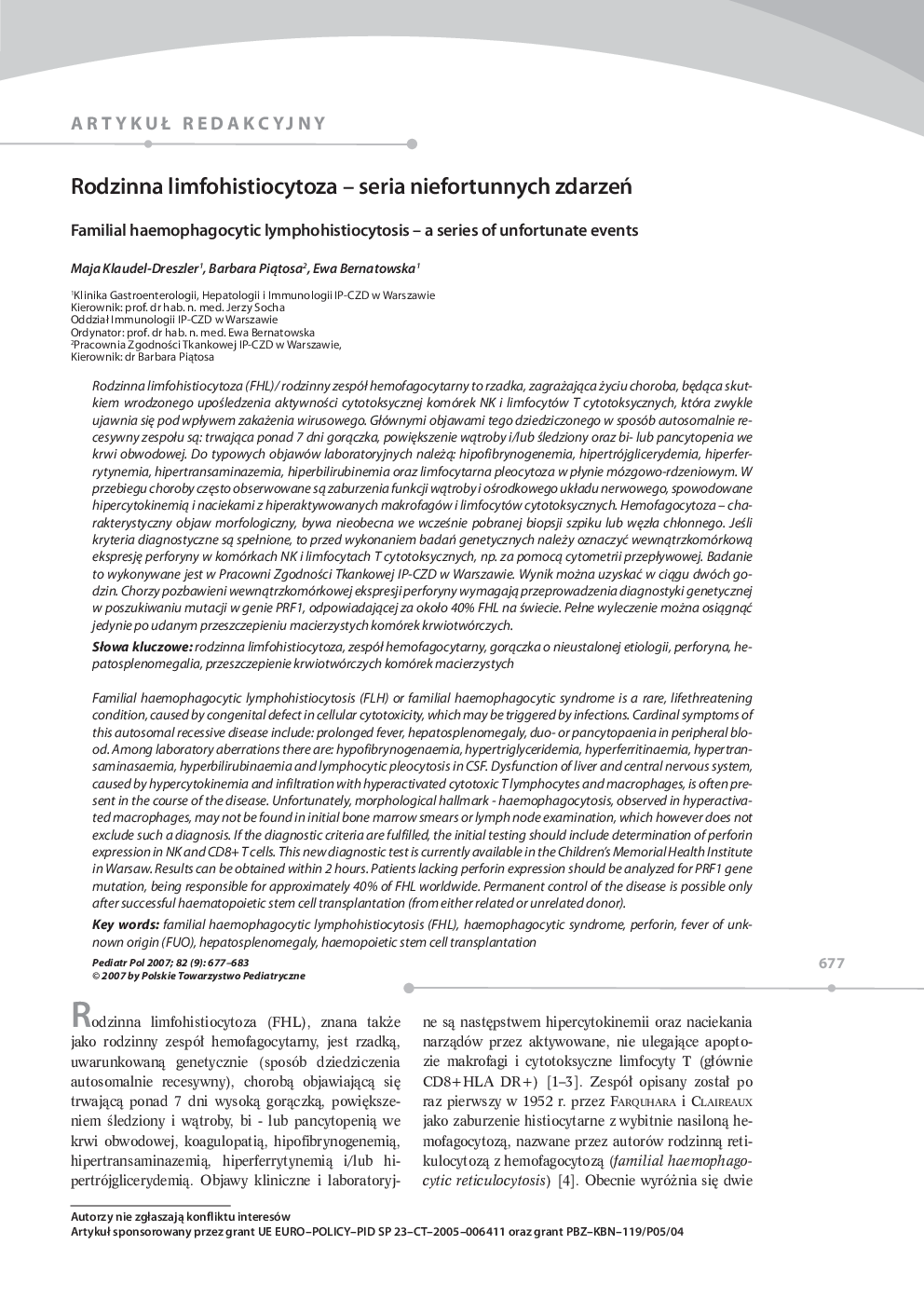| Article ID | Journal | Published Year | Pages | File Type |
|---|---|---|---|---|
| 2678441 | Pediatria Polska | 2007 | 7 Pages |
Abstract
Familial haemophagocytic lymphohistiocytosis (FLH) or familial haemophagocytic syndrome is a rare, lifethreatening condition, caused by congenital defect in cellular cytotoxicity, which may be triggered by infections. Cardinal symptoms of this autosomal recessive disease include: prolonged fever, hepatosplenomegaly, duo- or pancytopaenia in peripheral blood. Among laboratory aberrations there are: hypofibrynogenaemia, hypertriglyceridemia, hyperferritinaemia, hypertransaminasaemia, hyperbilirubinaemia and lymphocytic pleocytosis in CSF. Dysfunction of liver and central nervous system, caused by hypercytokinemia and infiltration with hyperactivated cytotoxic T lymphocytes and macrophages, is often present in the course of the disease. Unfortunately, morphological hallmark - haemophagocytosis, observed in hyperactivated macrophages, may not be found in initial bone marrow smears or lymph node examination, which however does not exclude such a diagnosis. If the diagnostic criteria are fulfilled, the initial testing should include determination of perforin expression in NK and CD8+ T cells. This new diagnostic test is currently available in the Children's Memorial Health Institute in Warsaw. Results can be obtained within 2 hours. Patients lacking perforin expression should be analyzed for PRF1 gene mutation, being responsible for approximately 40% of FHL worldwide. Permanent control of the disease is possible only after successful haematopoietic stem cell transplantation (from either related or unrelated donor).
Keywords
Related Topics
Health Sciences
Medicine and Dentistry
Dermatology
Authors
Maja Klaudel-Dreszler, Barbara PiÄ
tosa, Ewa Bernatowska,
